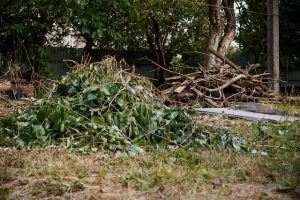
Certain tree species in Maryland are more prone to falling, especially during high winds and storms.
Certain tree species in Maryland are more prone to falling, especially during high winds and storms, due to weak wood, shallow and invasive root systems, and susceptibility to pests and disease. The trees in Maryland are noted for their higher risk of failure, especially in brutal weather conditions. Read on to learn more!
White Spruce Trees
White spruce is identified as having a much higher risk of failure in high winds because of its growth in wetter soil, which could weaken root stability. It is a common evergreen in Maryland, but it is less wind-resistant compared to other species. These kinds of trees are usually planted for privacy or as a windbreak, but it’s shallow roots make them very vulnerable in storms.
Braford Pear Trees
Known for weak branch unions because of narrow crotch angles, making it prone to splitting or breaking during storms. It’s also considered invasive in Maryland, which might lead to weaker structural integrity. These types of trees are popular in landscaping but are criticized for their structural weakness and invasiveness.
Willow Oak Trees
While a native oak, it will grow in wet soil, which could compromise root anchoring, increasing the likelihood of falling during storms. These trees are common around rivers and wetlands, valued for shade and wildlife support and help.
Water Oak Trees
Like willow oaks, water oaks are typically found in moist soils, which can lead to weaker root systems, making them susceptible to wind throw. Water oaks are usually found in Maryland’s coastal plain but less stable in higher winds.
Silver Maple Trees
Silver maples have invasive or shallow root systems that can stretch widely, making them less stable in storms. Their fast growth also contributes to much weaker wood. These trees are popular for good shade but problematic because of root invasiveness and storm vulnerability.
Black Locust Trees
Fast-growing with thin branches, black locusts are quite prone to dropping branches and splitting in high winds. Their tendency to spread through runners could also weaken individual trees. They’re common in Maryland, especially in the Appalachian area, but are very weak in storms.
Tree Care and Maintenance from Harford Tree
Ready to have the beautiful yard you have always dreamed of? Harford Tree Experts & Landscaping, Inc has been in the business for decades, providing customers with quality work and quick responses all at the right price. We service the areas of Harford County, Baltimore County, and Baltimore City areas including Bel Air, Fallston, Perry Hall, Towson, Essex, Parkville, White Marsh and Middle River.
For service during business hours, reach out to us or give us a call at 410-592-7321. We offer 24/7 emergency service as well, just give us a call at 443-250-6649. For updates about our business and more informative tips, follow us on Facebook and Twitter.
